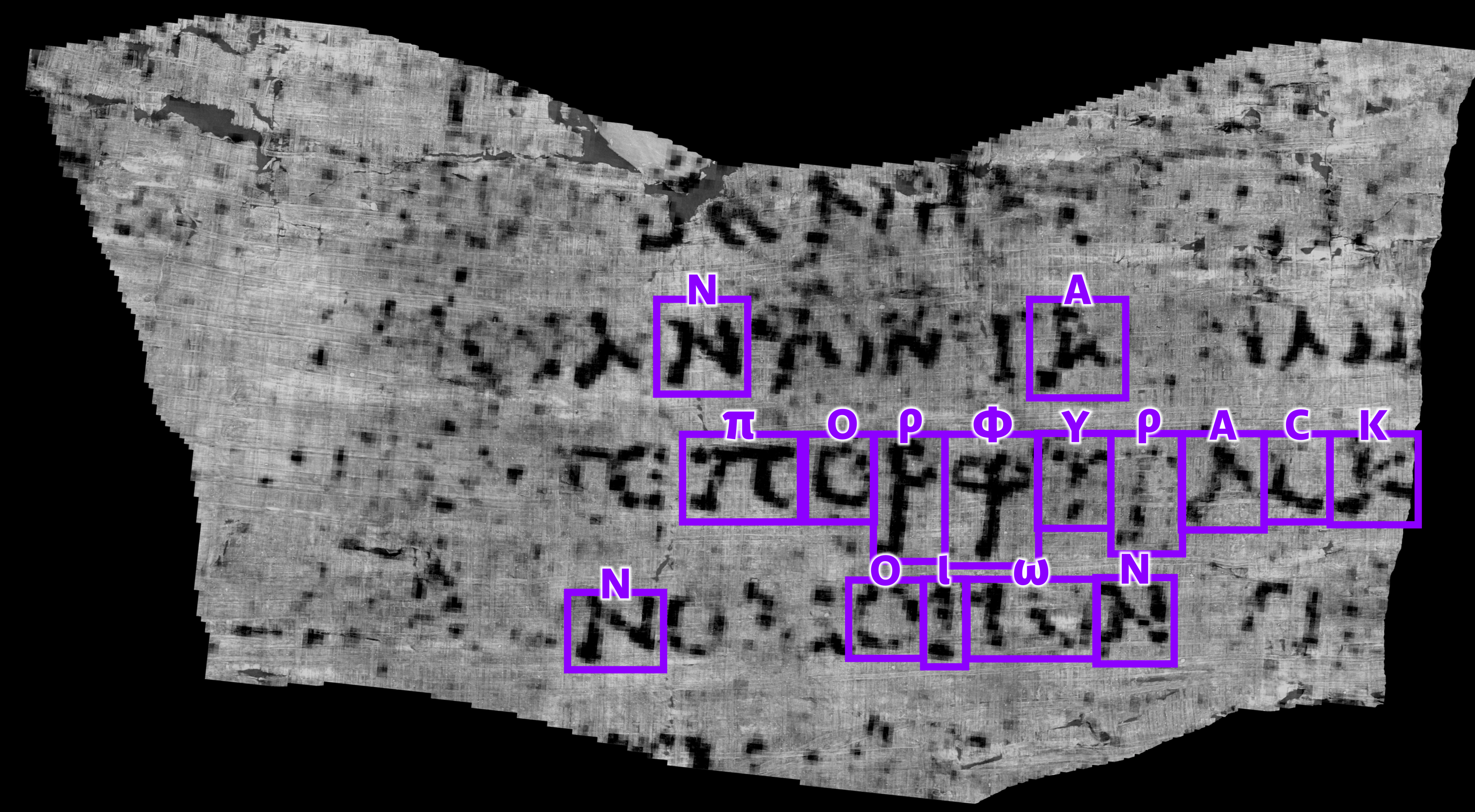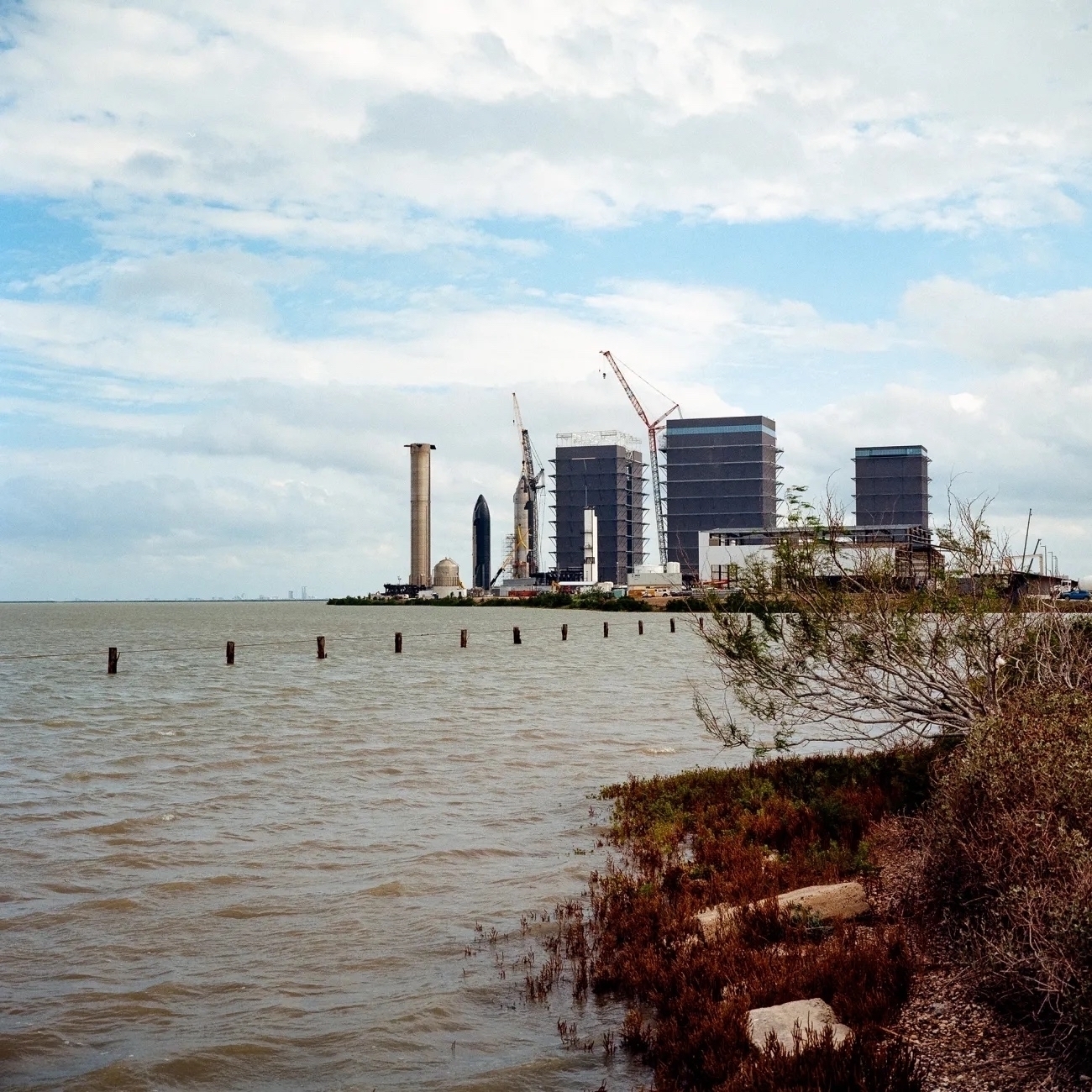"It seems fantastic that scholars in Torino in 1840 discussed computers, punch cards, programs, data, and memory storage. But the archives prove that they did."
These cards may be the oldest existent computer program in the world. They were brought to Torino as a part of some lucid, compelling explanation, but now, they are more obscure than the Egyptian hieroglyphs in the museum next door. There is something terrible about them.
Babbage described the idea of software to the Turinese in September 1840. The Turinese understood his idea and sympathized. They honored Babbage for his efforts. Those are facts.
The largest mystery, is the presence of the secret police.
Using AI to read the Herculaneum papyrus scrolls, carbonised when Venusius erupted 2,000 years ago
A great story about uncovering the words locked inside carbonised Roman scrolls. We should be using machine learning for more things like this, and using it to impersonate humans less.
In the modern era, the great pioneer of the scrolls is Brent Seales, a computer science professor at the University of Kentucky. For the past 20 years he’s used advanced medical imaging technology designed for CT scans and ultrasounds to analyze unreadable old texts. For most of that time he’s made the Herculaneum papyri his primary quest. “I had to,” he says. “No one else was working on it, and no one really thought it was even possible.”
Progress was slow. Seales built software that could theoretically take the scans of a coiled scroll and unroll it virtually, but it wasn’t prepared to handle a real Herculaneum scroll when he put it to the test in 2009. “The complexity of what we saw broke all of my software,” he says. “The layers inside the scroll were not uniform. They were all tangled and mashed together, and my software could not follow them reliably.”…
Unlike today’s large-language AI models, which gobble up data, Farritor’s model was able to get by with crumbs. For each 64-pixel-by-64-pixel square of the image, it was merely asking, is there ink here or not? And it helped that the output was known: Greek letters, squared along the right angles of the cross-hatched papyrus fibers.
Can AI Unlock the Secrets of the Ancient World? - Businessweek

The limitations of universal basic income – and why guaranteed employment and public services may offer a way forward
Some good points in this article by Jason Hickel:
But UBI fails to transform anything about the underlying system of production. It accepts the existing system on its own terms: it does nothing to change who controls production, what kinds of goods and services are produced, under what conditions, and for whose benefit. This is one of the reasons that plenty of neoliberal capitalists, including Milton Friedman, have been perfectly comfortable with the idea. But ignoring the system of production is a problem, because the system we presently have—capitalism—is profoundly destructive and cannot address the multiple crises we face.
Land grabs, tax breaks and environmental damage: Musk's Texas takeover
“The beach has always been a special privilege to us. It has enriched our quality of life despite the low pay that is available to us,” Serrano said. “Traditionally, people have called it the Poor People’s Beach.” Now, the tourists who visit the shore (when it isn’t closed to beachgoers) to gawk at the SpaceX rockets in the distance have a different name for it, Serrano said: Elon’s Beach.
Elon Musk’s Texas Takeover - Mother Jones


The use of AI tools in hiring processes is a black box but it's already widespread. Hiring is the single most important thing you do for an organisation – abrogating that responsibility to an A.I. is grossly irresponsible.
Many of the tools are essentially black boxes, says Schellmann. AI let loose on training data looks for patterns, which it then uses to make its predictions. But it isn’t necessarily clear what those patterns are and they can inadvertently bake in discrimination. Even the vendors may not know precisely how their tools are working, let alone the companies that are buying them or the candidates or employees who are subjected to them.
Schellmann tells of a black female software developer and military veteran who applied for 146 jobs in the tech industry before success. The developer doesn’t know why she had such a problem but she undertook one-way interviews and played AI video games, and she’s sure was subject to CV screening. She wonders if the technology took exception to her because she wasn’t a typical applicant. The job she eventually did find was by reaching out to a human recruiter.
[The AI tools that might stop you getting hired - The Guardian](www.theguardian.com/technolog…
"There's quite a movement among Māori all around the country. They've been gathering in their thousands and will come to Waitangi in huge numbers to confront the prime minister and the government."
“…discussion around the treaty is now the dominant political issue in New Zealand and when organiser Rueben Taipari put out the call for the hikoi to Waitangi to be in honour of upholding it, hundreds of people responded.
“How dare they think that they can erase Māori from Te Tiriti o Waitangi (the Treaty of Waitangi),” he said.”
We need to fight this constant dehumanisation "I thought I'd get the job. Then I found out my interviewer was an AI chatbot"
Logging onto an app and using a personalised link, I was told the interview would be limited to just five questions - which I didn’t really feel captured the scope of the job - and then we began.
I was shown a question on a screen for 60 seconds before having to answer verbally within the minute. Then, if I didn’t opt to give myself an additional 30 seconds, we’d move on.
I thought I’d get the job. Then I found out my interviewer was an AI chatbot - Metro UK via Black Aziz Ansari
Welcome to Tiny Train World, Winston: Clock edition
“Hey so I made a clock. It tells the time with a brand new poem every minute, composed by ChatGPT. It’s sometimes profound, and sometimes weird, and occasionally it fibs about what the actual time is to make a rhyme work.”
“Poem/1 fibs occasionally. I don’t believe it was actually 11.42 when this photo was taken. The AI hallucinated the time in order to make the poem work. What we do for art…”
Rhyming AI-powered clock sometimes lies about the time, makes up words - Arstechnica via Kristina
I love my phone case designed by Ailantd Sikowsky - you can get them from Redbubble

The value of architecture and design in aged and dementia care is clear - but routinely overlooked
Village Landais, which opened in 2020 and was recently highly commended in Dezeen’s annual design awards, aims to give as much agency and freedom, real and apparent, to the villagers, as the staff call them, as possible. The five-hectare complex has a fence around it, as it must for the safety of vulnerable residents, but within its boundary people can come and go, more or less as they choose. They can stroll around the open spaces (or run, or cycle, as people with Alzheimer’s can also be physically fit), visit their neighbours, go to the restaurant or to a show in the village auditorium, attend to animals and plants in a mini-farm and a kitchen garden.
Hopefully this kind of approach can be made more accessible, and not simply for the rich.

Never love a blog because it'll be resurrected as a zombie clickbait farm. The Hairpin is just the latest example.
This would be a nasty end for any independent media property. For The Hairpin, it’s especially repulsive, because the site was the antithesis of a content mill. It never courted a huge audience or chased trending topics—it was a writer-led website that found an audience by being experimental and intimate and odd. It served as a launching pad for bona fide stars like former New York Times reporter Jazmine Hughes, Bojack Horseman designer Lisa Hanawalt, and New Yorker writer Jia Tolentino precisely because it valued nurturing fresh ideas—and letting people make jokes!—not optimizing revenue per click.
In an attempt to understand the future of media, I tracked down The Hairpin’s new owner—a Serbian DJ named Nebojša Vujinović Vujo. He says the site is just the latest title in his stable of over 2,000 websites and admits that the majority of the new posts on The Hairpin are indeed AI-generated. “I buy new websites almost every day,” he says.
How Beloved Indie Blog ‘The Hairpin’ Turned Into an AI Clickbait Farm - Wired
When we’re young, we go around giving a fuck about all kinds of things, blissfully unaware of our ever-dwindling supply. Until one day, we give the last fuck we’ve got, and we notice that the invisible bag of fucks we’ve been carrying around all these years is finally, irredeemably, empty. We have no more fucks left to give.
Computers were a Mistake: Pandora's Box Edition

Interesting piece by Siva Vaidhyanathan in the Guardian:
Billions of people use such a device now, but hardly anyone peeks inside or thinks about the people who mined the metal or assembled the parts in dangerous conditions. We now have cars and appliances designed to feel like an iPhone – all glass, metal, curves and icons. None of them offer any clue that humans built them or maintained them. Everything seems like magic.
Forty years ago Apple debuted a computer that changed our world, for good or ill - The Guardian
I was incredibly excited when my father bought a Mac in 1985. I even made the invitations for my eighth birthday party in Paint.
Vaidhyanathan is right though. It represented a clear transition, where computers began to mask their origins and impacts. They were seen as countercultural items for those seeking to be "both hip and rich”. The first objects from interstitial space, rather than markers of those spaces.
Image credit: Mac by Thomas Hawk
"A moment of historic danger: It is still 90 seconds to midnight"
Everyone on Earth has an interest in reducing the likelihood of global catastrophe from nuclear weapons, climate change, advances in the life sciences, disruptive technologies, and the widespread corruption of the world’s information ecosystem. These threats, singularly and as they interact, are of such a character and magnitude that no one nation or leader can bring them under control. That is the task of leaders and nations working together in the shared belief that common threats demand common action. As the first step, and despite their profound disagreements, three of the world’s leading powers—the United States, China, and Russia—should commence serious dialogue about each of the global threats outlined here. At the highest levels, these three countries need to take responsibility for the existential danger the world now faces. They have the capacity to pull the world back from the brink of catastrophe. They should do so, with clarity and courage, and without delay.
A moment of historic danger: It is still 90 seconds to midnight - Bulletin of the Atomic Scientists
Theft and cultural parasitism: An analysis of the ways AI image generators represent a form of labour theft
A worthwhile essay by Trystan S. Goetze on the ways generative AI constitutes theft:
…built on the appropriation of vast troves of data obtained without consent. Moreover, machine learning models that are not employed in generative systems—such as, perhaps, certain large natural language understanding models— may also involve theft. New approaches to data collection and processing are needed for generative AI development to be morally permissible. Until then, these impressive new technologies do not stand on the shoulders of giants; rather, they parasitize their innards.
AI Art is Theft: Labour, Extraction, and Exploitation—Or, On the Dangers of Stochastic Pollocks 🎨
LARPing competence and seriousness
Doctorow’s recent linkdump is a litany of corporate failure, arrogance and malice towards their customers, ranging from pharma to film projectors. Brace yourself for this to become more entrenched as the norm:
